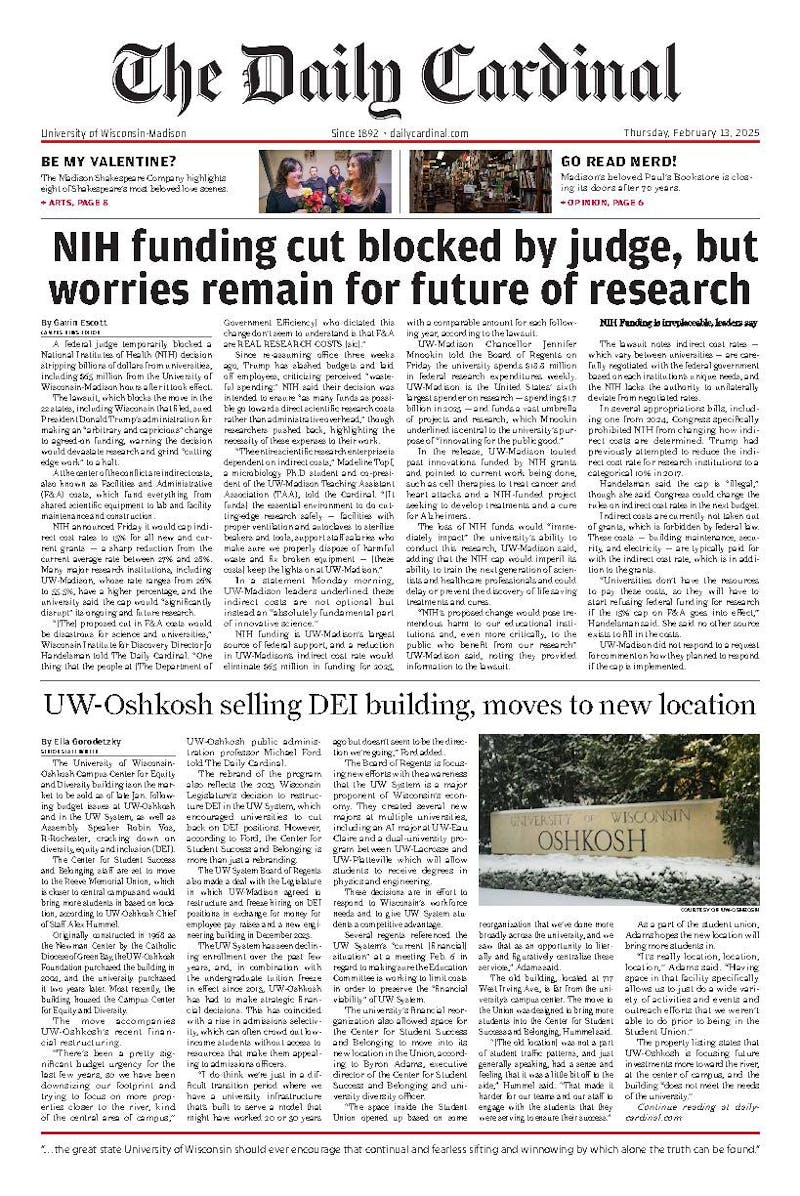A Republican bill that would require state employees who have worked remotely since the COVID-19 pandemic to return to taxpayer-funded offices starting July 1 is likely to be vetoed after opposition from Gov. Tony Evers.
Evers spokesperson Britt Cudaback told The Daily Cardinal on Tuesday that such a large-scale return to the offices would be difficult. Due to the space downsizing of large offices, accommodating everyone would be difficult. Cudaback said that it is neither “pragmatic or fiscally prudent” to reverse current consolidation plans, as it would cost Wisconsinites more.
Rep. Amanda Nedweski, R-Pleasant Prairie, and Sen. Cory Tomczyk, R-Mosinee, introduced the bill to increase efficiency and productivity and fill the office spaces taxpayers currently pay for.
Evers said in December that he would not sign the upcoming state budget if Republicans include a requirement mandating remote state employees to return to the office.
"I think it's important for us to say, 'We want to get the best people working for the state of Wisconsin possible,' and sometimes that will mean that they will work from home, part-time, full-time," Evers said in an interview on UPFRONT.
Current law requires state employees to sign written agreements with their employers for remote work and self-report the number of hours worked, while employers are responsible for verifying and tracking these numbers. The proposed bill would render this obsolete as all state employees must return to work for what Tomczyk said “ideally” would be a five-day work week.
Positions that have a telework agreement in place or were remote prior to the pandemic would be exempt. The Republican proposal is similar to President Donald Trump’s order in January, requiring all federal employees to return to work in-person on a full-time basis, but Gov. Tony Evers indicated late last year he would block such a measure.
At a public hearing for the bill Tuesday, Nedweski argued that the shift to remote work was implemented to prevent the spread of COVID-19 in 2020. She said the Legislature should reevaluate the need for remote work now that COVID-19 is no longer a risk.
During the hearing, Nedweski said it’s not the bill’s intent to ban all remote work, but instead for the state to systematically evaluate its impact.
She claimed that she did not oppose telework and how it has “transformed the workforce” but that the government had used COVID-19 as a “non-performance, non-fiscal factor” to excuse workers from working on-site. It had “failed to follow up on whether or not this is a good idea for all positions.”
State agencies and the University of Wisconsin System allowed their employees to work from home up to five days a week, and one-third or less of workstations at state offices were being used during audit visits, according to a 2023 analysis released by the nonpartisan Legislative Audit Bureau.
Between July and August 2023, the Office of the Commissioner of Insurance had the highest percentage of UW System workstations used at 34.5%, based on six visits to 15 agencies. The Department of Public Instruction only used 5.3% of their workstations, the lowest percentage of those audited.
Nedweski said these findings raised significant concerns about the efficiency and enforceability of current telework practices and said this “lack of documentation and oversight” makes it “nearly impossible” to measure the productivity and efficacy of state agency workers.
Sen. Chris Larson, D-Milwaukee, said at the public hearing that while he agreed with the bill's intentions to bring back workers, he raised concerns about abruptly moving all state employees back into office before seeing what is and isn’t working, comparing the bill to “pulling the fire alarm to do an attendance check.”
State News Editor Anna Kleiber contributed reporting to this article.






